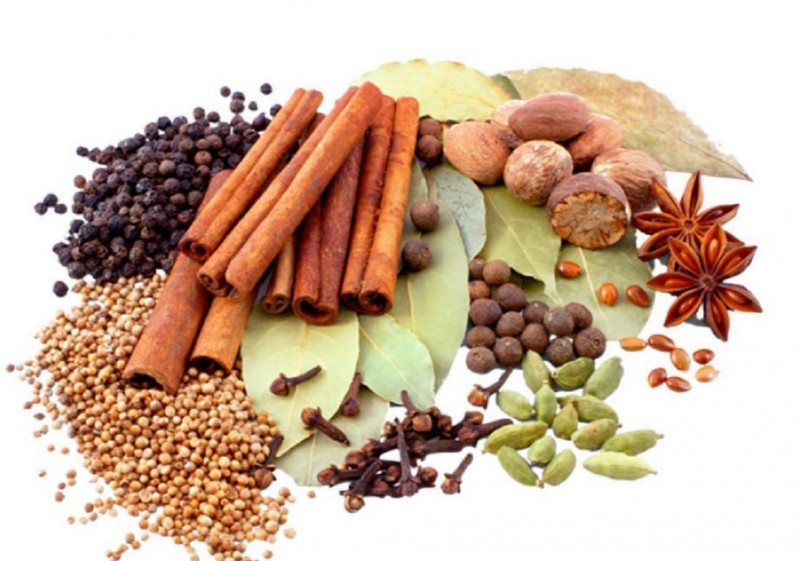
Indian cuisine is renowned for its rich and diverse flavors, with spices playing a central role in creating its distinctive taste. Spices are not only used to enhance the flavor of various dishes but are also known for their potential health benefits. They are believed to boost immunity and help combat common ailments such as colds, coughs, and viral infections. However, it's essential to exercise caution when consuming excessive amounts of hot spices, as they can have adverse effects on health.
Potential Health Risks of Excessive Spice Consumption:-
Digestive Distress: Consuming an excessive amount of spicy foods can wreak havoc on your digestive system. The intense heat from spices like chili peppers, cloves, and ginger can irritate the lining of your stomach and lead to discomfort. This irritation may manifest as stomachaches, cramps, and a burning sensation, commonly known as heartburn. It can also exacerbate conditions such as gastritis and acid reflux, making them more painful and difficult to manage.
Gastrointestinal Issues: Prolonged excessive spice consumption can lead to more serious gastrointestinal issues. Chronic exposure to hot spices may contribute to the development of conditions like peptic ulcers. Spices can exacerbate the erosion of the stomach's protective lining and intensify ulcer-related symptoms such as abdominal pain, bloating, and nausea.
Acidity and Reflux: The high acidity levels in many spicy foods can trigger an increase in stomach acid production. This excess acid can lead to severe acidity and acid reflux, causing a sour taste in the mouth, regurgitation of stomach contents into the esophagus, and a burning sensation in the chest, commonly known as heartburn. If left untreated, chronic acid reflux can lead to a more serious condition called gastroesophageal reflux disease (GERD).
Inflammatory Bowel Disorders: For individuals with inflammatory bowel disorders (IBD), such as Crohn's disease or ulcerative colitis, excessive spice consumption can be particularly problematic. Spices can exacerbate inflammation in the gastrointestinal tract, leading to painful flare-ups of these conditions. It's crucial for individuals with IBD to carefully manage their spice intake to prevent worsening of their symptoms.
Irritable Bowel Syndrome (IBS): People with irritable bowel syndrome are often sensitive to spicy foods. Excessive consumption of hot spices can trigger IBS symptoms, including abdominal pain, diarrhea, and constipation. Managing spice intake is essential for those with IBS to avoid uncomfortable and unpredictable flare-ups.
Allergic Reactions: Some individuals may have allergies or sensitivities to certain spices. Consuming large quantities of these spices can lead to allergic reactions, which may include hives, itching, swelling, and in severe cases, difficulty breathing. It's crucial to be aware of any spice allergies you may have and avoid those spices to prevent allergic reactions.
Blood Pressure Concerns: Excessive spice consumption can elevate blood pressure levels due to the compounds found in certain spices, particularly salt. High blood pressure is a risk factor for heart disease and stroke. People with hypertension should limit their intake of high-sodium spicy foods to help maintain healthy blood pressure levels.
Balancing Flavor and Health:-
1. Portion Control: One effective way to balance flavor and health is by controlling the portion size of spicy foods. You can enjoy the rich flavors of spices without overindulging by simply reducing the quantity you consume. Start with smaller portions and savor each bite to fully appreciate the taste.
2. Gradual Increase: If you're new to spicy foods or want to increase your tolerance, consider a gradual approach. Begin with milder spices and gradually work your way up to hotter ones. This allows your palate to adjust and reduces the risk of discomfort.
3. Choose Wisely: Not all spices have the same level of heat or impact on health. Opt for spices that offer both flavor and potential health benefits, such as turmeric, ginger, and garlic. These spices are known for their anti-inflammatory and antioxidant properties.
4. Balanced Meals: Incorporate a variety of foods into your meals to create a balanced diet. Pair spicy dishes with foods that have a cooling effect, like yogurt or cucumber, to help mitigate the heat and reduce the risk of digestive discomfort.
5. Hydration: Spicy foods can cause sweating and increased thirst. Stay well-hydrated by drinking water or herbal teas to help soothe any burning sensations in your mouth and promote overall well-being.
6. Mindful Eating: Practice mindful eating by paying attention to your body's cues. Stop eating when you're satisfied rather than when you're overly full. This can prevent overconsumption and reduce the risk of digestive issues.
7. Dietary Modifications: If you have specific dietary restrictions or health concerns, consider modifying your recipes to make them healthier. Use leaner cuts of meat or plant-based protein sources, reduce added fats, and choose whole grains to create a balanced and nutritious meal.
8. Seek Professional Guidance: If you have underlying health conditions, allergies, or dietary restrictions, it's advisable to consult with a healthcare professional or registered dietitian. They can provide personalized guidance on how to incorporate spices into your diet safely and effectively.
9. Experiment and Learn: Don't be afraid to experiment with different spices and flavors to find what works best for you. Everyone's palate is unique, so exploring various combinations can make your meals both enjoyable and health-conscious.
10. Enjoy the Process: Balancing flavor and health isn't about deprivation but about making conscious choices that enhance your culinary experience and well-being. Embrace the journey of discovering new flavors and creating delicious, nutritious meals.
In conclusion, while spices are an integral part of Indian cuisine and offer numerous health benefits when consumed in moderation, excessive intake can lead to various health issues. It's crucial to strike a balance by enjoying the flavors of spices without compromising your well-being. By being mindful of your spice consumption and its impact on your health, you can savor the richness of Indian cuisine while staying healthy and comfortable.
India-UAE Sign MoU for Technology Collaboration in Space, AI, and Renewable Energy
Delhi Retains Title of India's Most Polluted City, Patna Follows Closely Behind